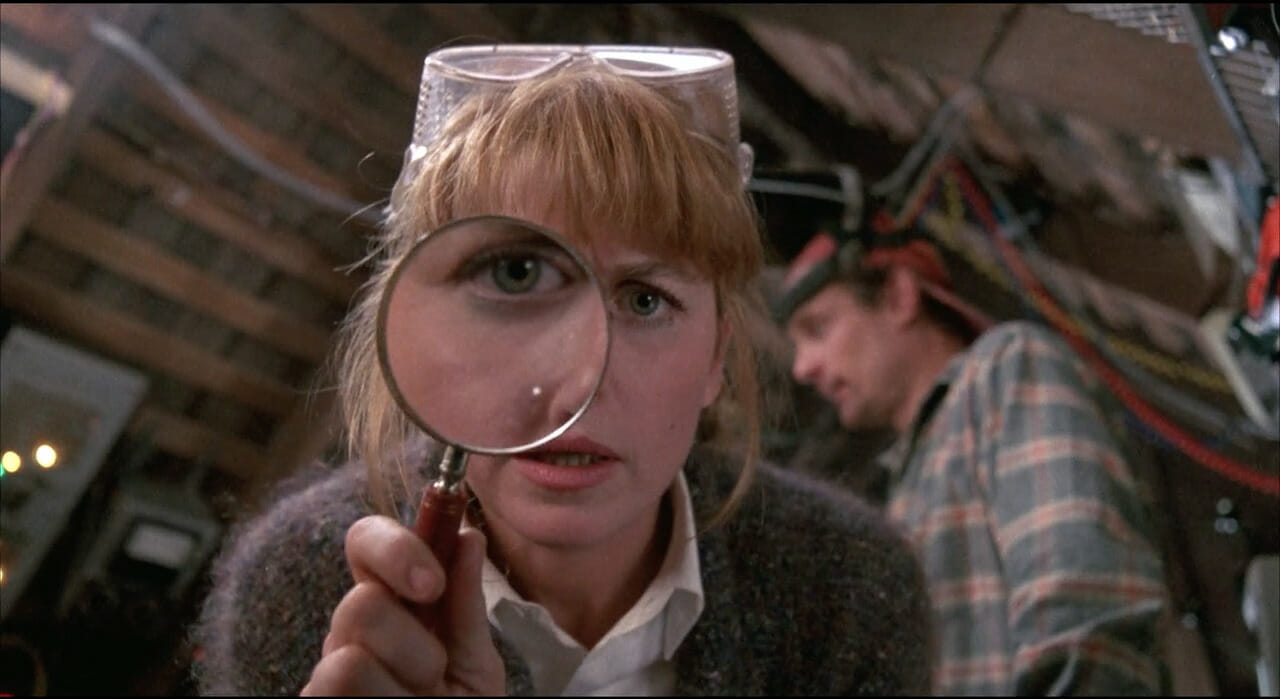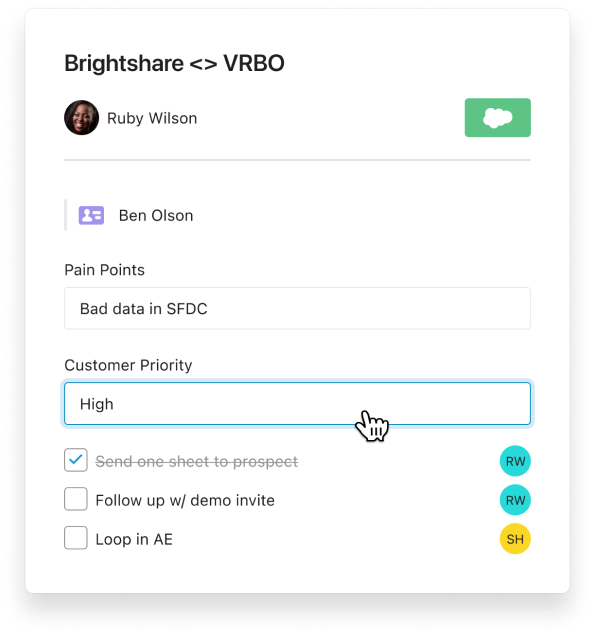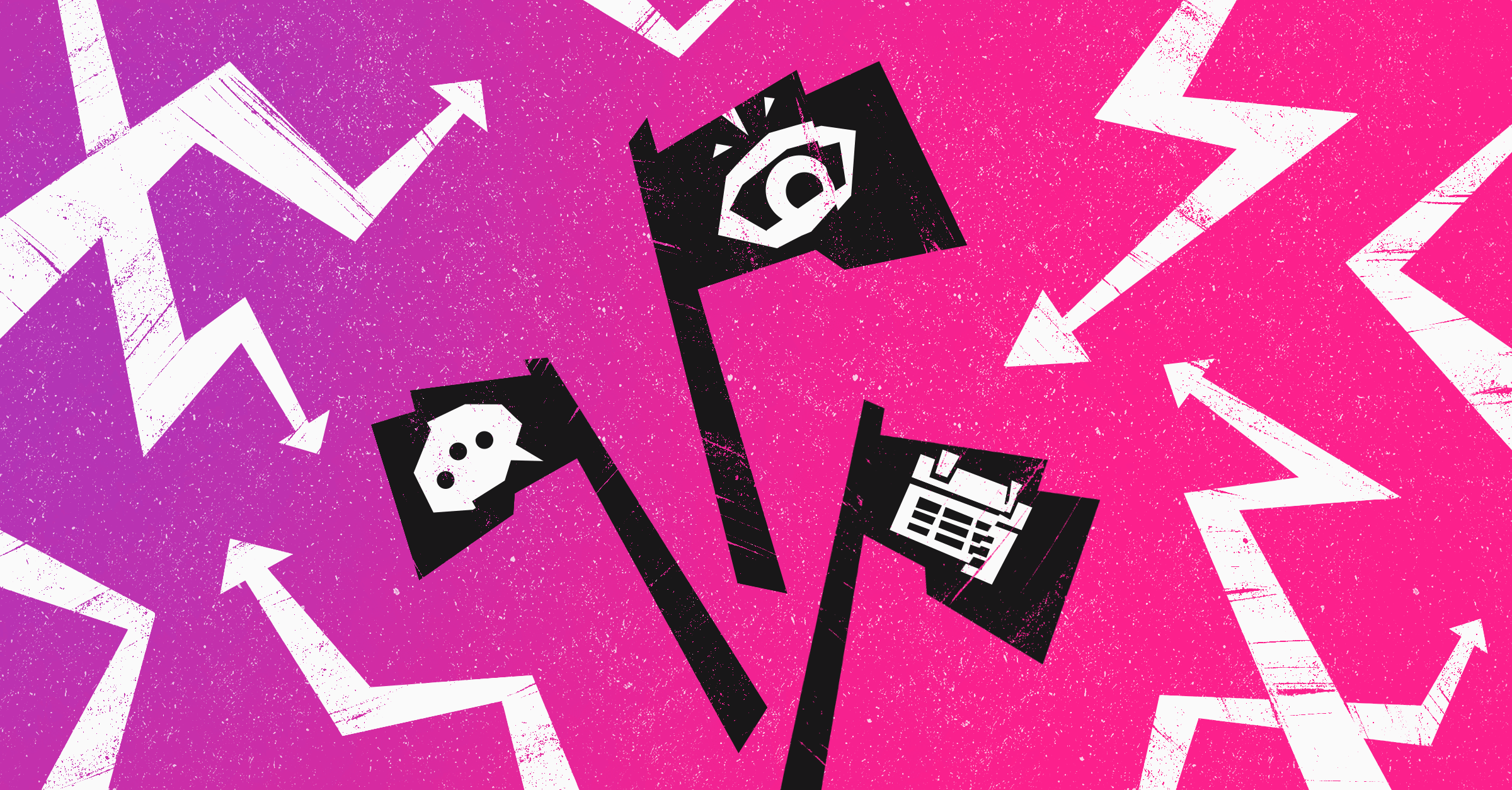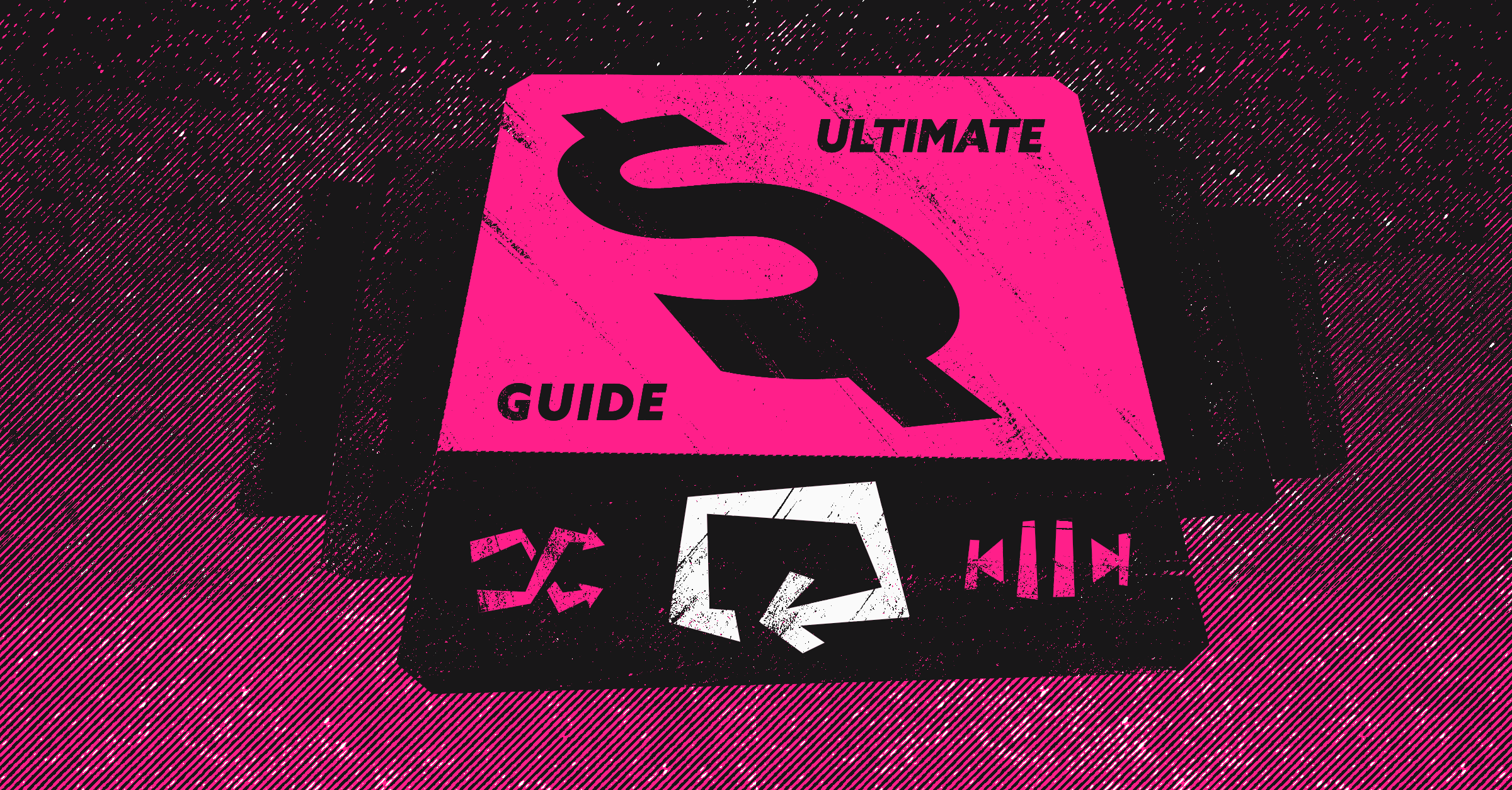
In sales, the most difficult decision you have to make every day is what to focus your time and attention on. There are so many tasks and potential conversations you can have on any given day that deciding who and what will get you over that finish line can become a task unto itself, which can lead to analysis paralysis, or increased self-doubt as you spin your wheels rather than putting in a focused effort.
But it need not be this way, as a productive sales rep is one who not only does periods of long, sustained work, but, perhaps more importantly, focuses their efforts in the right places: on prospects and deals that have a high likelihood of closing, rather than on anyone and everyone who expresses any sort of interest.
So how can one decide which deals to focus on, especially when the CRM (and the whole wide world) is filled with endless names, all of which (in theory) could be potential customers?
Here are five tips that can help:
1. Similarity to existing customers
Companies have ICPs (ideal customer profiles) for a reason, and sales reps shouldn’t overlook patterns in who and why certain people become customers.
If you have leads that are similar to those who you’ve closed in the past, not only do you stand a higher likelihood of closing them, but you also have a great story to tell: “We work with XXX company, which is quite similar to yours, and they’ve been extremely happy with their results.”
If you’re overwhelmed and don’t know where to start, focus on the people (and companies) that are most similar to the ones who are already buying from you.
2. Velocity
According to Gong, the number one indicator of whether a deal is going to close or not is a bit surprising. According to their research, the best indicator is email velocity.
Email velocity, or email frequency, is the number of emails exchanged between a sales rep and a prospect over a given period of time. To put it even more simply: the more a prospect emails you, the more likely they are to close.
It’s certainly not rocket science, but it’s a factor that shouldn’t be overlooked. If your prospect is proactive and initiating (and responding) to your messages, there’s a good chance you’ll be able to get to a closed won, and you should focus your energies accordingly.
3. Missing information
An effective way to determine which deals are promising is by figuring out which deals are definitely not. This can be done by checking for missing information.
If a record is sparse, there’s a pretty good chance that there’s not much to work with, or that the deal has stalled. And Dooly can help make this filtering process significantly easier — instead of looking at each record individually, you can create a list of opportunities in your pipeline with low dollar amounts that don’t have clear next steps established.
That way, you can spend time working on the deals that matter, and less time trying to figure out which ones are worth your efforts.
4. Decision-makers
Without decision-makers, your deal is dead in the water, even if you have an internal champion who sings your praises from the highest rooftops.
When looking for the most promising deals, take stock of whether the people who control the budget are on board, or whether you haven’t gotten to that point yet. If it’s the latter, then the deal certainly might still close, but it’s likely to be a ways away.
Bigger complex deals, especially, tend to move slower, and without a decision maker’s buy-in, you might have a deal in process, but it’s nowhere near the finish line.
5. Relationships
When you’re trying to decide where to focus, you shouldn’t discount your gut feelings. Humans are intuitive, and many of us have a sixth sense for other people, and how well we relate to them. This is why relationships are at the crux of many sales transactions.
People will not only buy because they have problems they need to solve, but they’ll buy because they trust and like you — and these are not mutually exclusive.
So when you’re going through your pipeline and trying to make difficult decisions about how to spend your time, start with the people who you have developed relationships with — it’s not a guarantee that their deals will close. Still, you’ll give yourself the absolute best chance possible.
Finally, a sales process that gives you the freedom to sell.
Use Dooly to keep your deals on track, and your manager off your back.
Try Dooly for free
Join the thousands of top-performing AEs who use Dooly every day to stay more organized, instantly update their pipeline, and spend more time selling instead of mindless admin work. Try Dooly free, no credit card required. Or, Request a demo to speak with a Dooly product expert right now.


